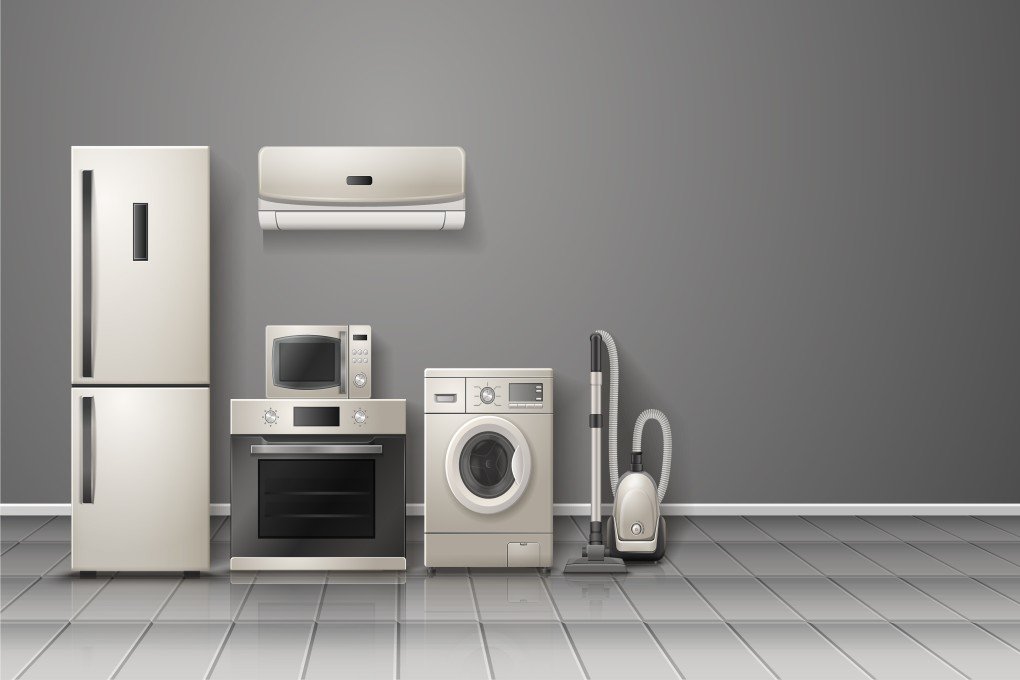Factors to Consider When Buying Home Appliances
Functionality and Purpose
The first step in choosing the right home appliances is to define their intended functionality and purpose. Consider the specific tasks you want the appliance to perform. For instance, when selecting a refrigerator, think about your family size and storage needs. If you enjoy cooking, a spacious and well-organised refrigerator may be essential. On the other hand, if you’re primarily concerned about energy efficiency, look for models with high Energy Star ratings.
Size and Space Constraints
Another critical factor to consider is the available space in your home. Measure the designated area where you plan to install the appliance, whether it’s the kitchen, laundry room, or any other room. Be sure to account for clearance space as well, allowing the appliance to function correctly and ensuring proper ventilation.
Energy Efficiency
Energy efficiency is not only responsible for the environment, but it is also cost-effective in the long run. Look for appliances that have a high Energy Star rating, which indicates that they use less energy. Energy-saving appliances not only save you money on power bills, but they also help to lessen your carbon imprint.
Budget
Set a budget before you start shopping for appliances. Establishing a price range will help you narrow down your options and prevent overspending. Keep in mind that while some appliances may have a higher upfront cost, their energy-efficient features can lead to long-term savings.
Brand and Reliability
Research and choose reputable appliance brands known for their reliability and durability. Reading reviews and seeking recommendations from friends and family can provide valuable insights into the performance and longevity of different brands and models. Investing in quality appliances from trusted manufacturers can save you money on repairs and replacements down the line.
Warranty and Service
Always check the warranty offered with the appliance. A longer warranty period can provide peace of mind, as it covers repair or replacement in case of malfunctions or defects. Additionally, consider the availability of service centers and qualified technicians in your area who can provide maintenance and repairs for the chosen brand and model.
Features and Technology
Modern home appliances often come equipped with advanced features and technology. While these innovations can enhance functionality and convenience, they can also add to the cost. Assess whether these features align with your needs and lifestyle. For example, a smart refrigerator with a built-in touchscreen may be appealing if you enjoy meal planning and grocery lists, but it might not be necessary for everyone.
Style and Aesthetics
The appearance of your appliances can also be a significant factor, especially if you’re concerned about the overall aesthetics of your home. Many appliances now come in various finishes, such as stainless steel, black, white, or custom panel-ready options, allowing you to coordinate them with your kitchen or interior design.
Maintenance and Cleaning
Consider the ease of maintenance and cleaning for each appliance. Appliances that are easy to clean and maintain can save you time and effort in the long run. Stainless steel appliances, for example, are known for their resistance to smudges and stains, making them a popular choice for those who want hassle-free cleaning.
Noise Level
Some appliances, like dishwashers and washing machines, can be noisy during operation. If you have an open floor plan or bedrooms close to the appliance location, noise level can be a significant consideration. Look for appliances with noise reduction features or check user reviews for feedback on how quiet or noisy a particular model is.
User-Friendly Controls
User-friendly controls can make a significant difference in your daily experience with home appliances. Look for appliances with intuitive interfaces and clearly labeled buttons or touchscreen displays. Consider whether the control layout and design are easy to understand, especially if multiple family members will be using the appliance.
Capacity and Load Size
The capacity of an appliance is a crucial consideration. For washing machines, dryers, ovens, and refrigerators, the size of the drum, oven cavity, or storage space can impact how much you can accomplish in a single use. Ensure that the appliance’s capacity aligns with your household’s needs. For example, a larger washing machine may be necessary for a family with several members, while a compact model might suffice for a single person or a couple.
Longevity and Resale Value
Consider the long-term value of your appliance. Some brands and models are known for their longevity, lasting well beyond their warranty period. While these appliances may have a higher upfront cost, they can ultimately be more cost-effective over time. Additionally, certain brands and models retain their resale value better than others, which can be important if you plan to upgrade or sell your home in the future.
Energy Source and Compatibility
Check the compatibility of the appliance with your home’s energy source. For instance, some stoves and dryers are available in both electric and gas models. Ensure that the appliance you choose aligns with your home’s existing energy infrastructure or that you’re prepared for any necessary modifications. Additionally, consider the environmental impact and cost of the energy source. For example, electric appliances are often more energy-efficient than their gas counterparts, but energy costs can vary depending on your location.
Serviceability and Availability of Parts
Before making a purchase, inquire about the serviceability of the appliance and the availability of replacement parts. It’s essential to choose appliances that can be serviced and repaired by qualified technicians in your area. Some brands and models have a reputation for being easy to maintain and repair, which can extend the lifespan of your appliances and reduce downtime in case of breakdowns.
Safety Features
Safety should be a top priority when selecting home appliances, particularly for appliances that involve heat, gas, or electrical elements. Look for safety features like automatic shutoff, child locks, and overheating protection. For gas appliances, ensure they have proper ventilation and safety certifications. Safety not only protects you and your family but also your home from potential hazards.

